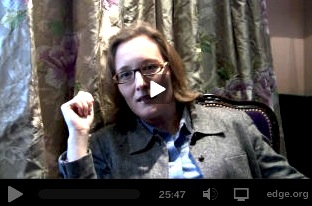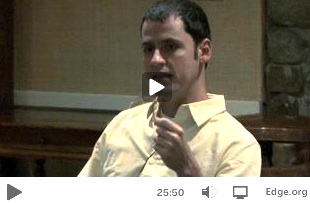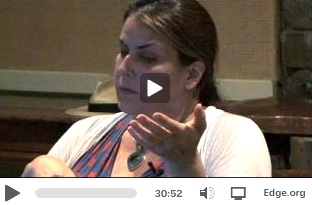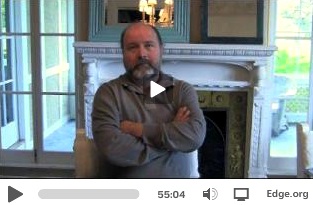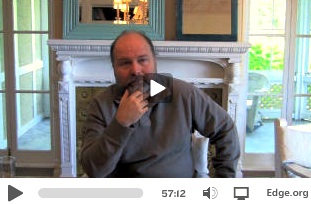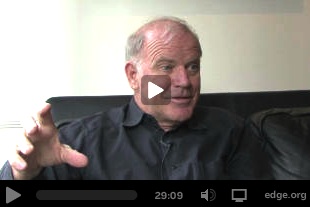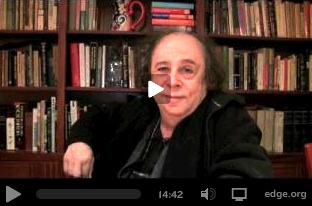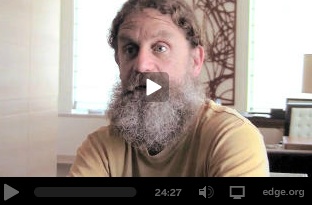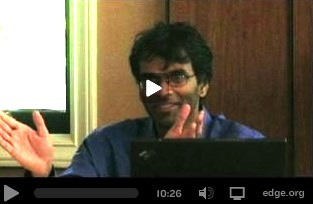|
EDGE CONVERSATION
ADVENTURES IN BEHAVIORAL NEUROLOGY—OR—WHAT NEUROLOGY CAN TELL US ABOUT HUMAN NATURE
A Talk With Vilaynur Ramachandran
Neuroscientist; Professor & Director, Center for Brain and Cognition, UC, San Diego; Author, The Tell-Tale Brain

So here is something staring you in the face, anextraordinary syndrome, utterly mysterious, where a person wants his normal limb removed. Why does this happen? There are all kinds of crazy theories about it including Freudian theories. One theory asserts, for example, that it's an attention seeking behavior. This chap wants attention so he asks you to remove his arm. It doesn't make any sense.Why does he not want his nose removed or ear removed or something less drastic? Why an arm.
|
|
|
EDGE CONVERSATION
RE-THINKING "OUT OF AFRICA"
A Talk With Christopher Stringer
Paleoanthropologist, The Natural History Museum, London; Author, Lone Survivors

I'm thinking a lot about species concepts as applied to humans, about the "Out of Africa" model, and also looking back into Africa itself. I think the idea that modern humans originated in Africa is still a sound concept. Behaviorally and physically, we began our story there, but I've come around to thinking that it wasn't a simple origin. Twenty years ago, I would have argued that our species evolved in one place, maybe in East Africa or South Africa.
|
|
|
|
EDGE CONVERSATION
INFINITE STUPIDITY
A Talk With Mark Pagel
Professor of Evolutionary Biology, Reading University, England and The Santa Fe Institute; Author, Wired for Culture
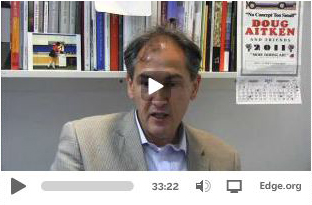
A tiny number of ideas can go a long way, as we've seen. And the Internet makes that more and more likely. What's happening is that we might, in fact, be at a time in our history where we're being domesticated by these great big societal things, such as Facebook and the Internet. We're being domesticated by them, because fewer and fewer and fewer of us have to be innovators to get by. And so, in the cold calculus of evolution by natural selection, at no greater time in history than ever before, copiers are probably doing better than innovators.
|
|
|
EDGE CONVERSATION
THINKING ABOUT THE UNIVERSE ON THE LARGER SCALES
Raphael Bousso
Professor of Theoretical Physics, Berkeley
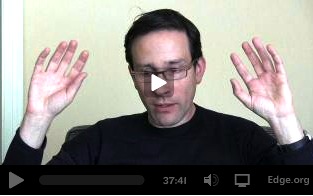 Andrei Linde had some ideas, Alan Guth had some ideas, Alex Vilenkin had some ideas. I thought I was coming in with this radically new idea that we shouldn't think of the universe as existing on this global scale that no one observer can actually see, that it's actually important to think about what can happen in the causally connected region to one observer, what can you do in any experiment that doesn't actually conflict with the laws of physics, and require superluminal propagation, that we have to ask questions in a way that conform to the laws of physics if we want to get sensible answers. Andrei Linde had some ideas, Alan Guth had some ideas, Alex Vilenkin had some ideas. I thought I was coming in with this radically new idea that we shouldn't think of the universe as existing on this global scale that no one observer can actually see, that it's actually important to think about what can happen in the causally connected region to one observer, what can you do in any experiment that doesn't actually conflict with the laws of physics, and require superluminal propagation, that we have to ask questions in a way that conform to the laws of physics if we want to get sensible answers.
|
|
|
EDGE CONVERSATION
A ROUGH MIX: BRIAN ENO & JENNIFER JACQUET
Brian Eno & Jennifer Jacquet
ENO: Artist; Composer; Recording Producer: U2, Coldplay, Talking Heads, Paul Simon; Recording Artist, Small Craft on a Milk Sea
JACQUET: Postdoctoral Researcher, Fisheries Centre/Department of Mathematics, University of British Columbia, researching cooperation and the tragedy of the commons
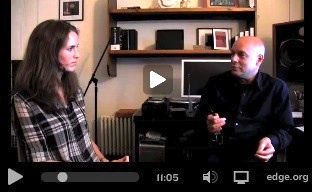
ENO: Usually one is asked to do music for films but this is for a totem pole.
JACQUET: Throughout the 19th century, native tribes that spanned the north coast of North America erected shame totem poles to signal to the community that certain individuals or groups had transgressed.
|
|
|
EDGE ON THE ROAD
EDGE @ SCIFOO
Googleplex, Mountain View, California — August 12-14, 2011
Frank Wilczek, Jennifer Jacquet, Timo Hannay
WILCZEK Physicist, MIT; Recipient, 2004 Nobel Prize in Physics; Author, The Lightness of Being
HANNAY Managing Director, Digital Science, Macmillan Publishers Ltd.;Former Publisher, Nature.com; Co-Organizer, Sci Foo
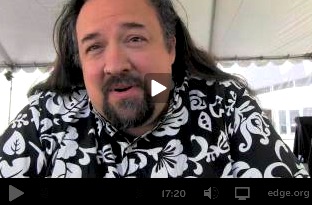 Ask the question you are asking yourself. You have one minute.—JB Ask the question you are asking yourself. You have one minute.—JB
|
|
|
EDGE CONVERSATION
THE LOCAL-GLOBAL FLIP, OR, "THE LANIER EFFECT"
A Conversation with Jaron Lanier
Computer scientist; musician; author, You Are Not A Gadget
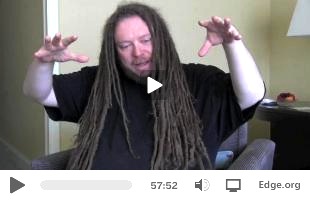 If you aspire to use computer network power to become a global force through shaping the world instead of acting as a local player in an unfathomably large environment, when you make that global flip, you can no longer play the game of advantaging the design of the world to yourself and expect it to be sustainable. The great difficulty of becoming powerful and getting close to a computer network is: Can people learn to forego the temptations, the heroin-like rewards of being able to reform the world to your own advantage in order to instead make something sustainable? If you aspire to use computer network power to become a global force through shaping the world instead of acting as a local player in an unfathomably large environment, when you make that global flip, you can no longer play the game of advantaging the design of the world to yourself and expect it to be sustainable. The great difficulty of becoming powerful and getting close to a computer network is: Can people learn to forego the temptations, the heroin-like rewards of being able to reform the world to your own advantage in order to instead make something sustainable?
|
|
|
EDGE CONVERSATION
ON THE SCIENCE OF COOKING
An Edge Conversation with Nathan Myhrvold
CEO and Managing Director, Intellectual Ventures; Co-Author (with Bill Gates), The Road Ahead; Author, Modernist Cuisine
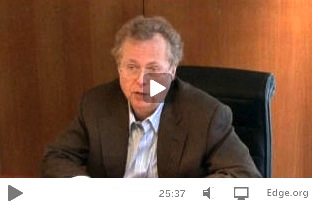
Cooking also obeys the laws of physics, in particular chemistry. Yet it is quite possible to cook without understanding it. You can cook better if you do understand what is going on, particularly if you want to deviate from the ways that people have cooked before. If you want to follow a recipe exactly, slavishly, what the hell, you can do it without understanding it. As a rote automaton, you can say, "yes, I mixed this, I cook at this temperature" and so forth. But if you want to do something really different, if you want to go color outside the lines, if you want to go outside of the recipe, it helps if you have some intuition as to how things work.
|
|
|
EDGE MASTER CLASS
THE MARVELS AND THE FLOWS OF INTUITIVE THINKING
Daniel Kahneman
Eugene Higgins Emeritus Professor of Psychology; Nobel Laureate; Author, Thinking Fast and Slow
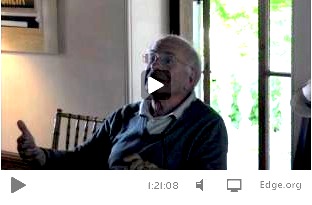 The power of settings, the power of priming, and the power of unconscious thinking, all of those are a major change in psychology. I can't think of a bigger change in my lifetime. You were asking what's exciting? That's exciting, to me. The power of settings, the power of priming, and the power of unconscious thinking, all of those are a major change in psychology. I can't think of a bigger change in my lifetime. You were asking what's exciting? That's exciting, to me.
|
|
|
EDGE MASTER CLASS
THE EVOLUTION OF COOPERATION
Martin Nowak
Professor of Biology and Mathematics, Harvard University; coathor, SuperCooperators
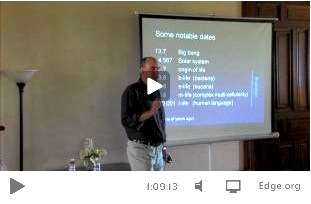 Why has cooperation, not competition, always been the key to the evolution of complexity? Why has cooperation, not competition, always been the key to the evolution of complexity?
|
|
|
EDGE MASTER CLASS
A HISTORY OF VIOLENCE
Steven Pinker
Johnstone Family Professor, Department of Psychology; Harvard University; Author, The Better Angles of Our Nature
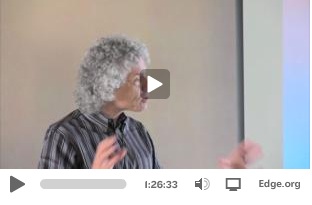 What may be the most important thing that has ever happened in human history is that violence has gone down, by dramatic degrees, and in many dimensions all over the world and in many spheres of behavior: genocide, war, human sacrifice, torture, slavery, and the treatment of racial minorities, women, children, and animals. What may be the most important thing that has ever happened in human history is that violence has gone down, by dramatic degrees, and in many dimensions all over the world and in many spheres of behavior: genocide, war, human sacrifice, torture, slavery, and the treatment of racial minorities, women, children, and animals.
|
|
|
EDGE MATSER CLASS
THE ARCHITECTURE OF MOTIVATION
Leda Cosmides
Professor of Psychology at UCSB
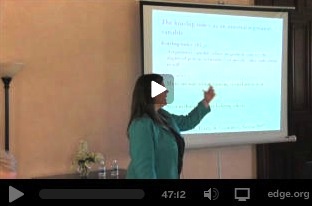
Recent research concerning the welfare of others, etc. affects not only how to think about certain emotions, but also overturns how most models of reciprocity and exchange, with implications about how people think about modern markets, political systems, and societies. What are these new approaches to human motivation?
|
|
|
EDGE MASTER CLASS
NEUROSCIENCE AND JUSTICE
Michael Gazzaniga
Neuroscientist, UC Santa Barbara; Author, Who's In Charge
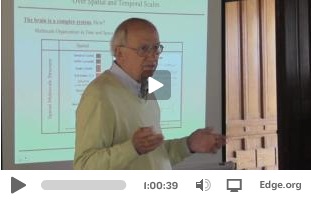 Asking the fundamental question of modern life. In an enlightened world of scientific understandings of first causes, we must ask: are we free, morally responsible agents or are we just along for the ride? Asking the fundamental question of modern life. In an enlightened world of scientific understandings of first causes, we must ask: are we free, morally responsible agents or are we just along for the ride?
|
|
|
EDGE MASTER CLASS
THE BOOK OF REVELATION: PROPHECY AND POLITICS
Elaine Pagels
Harrington Spear Paine Professor of Religion, Princeton University; Author, Revelations
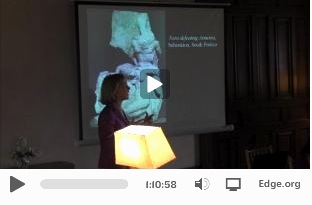
Why is religion still alive? Why are people still engaged in old folk takes and mythological stories — even those without rational and ethical foundations.
|
|
|
|
EDGE CONVERSATION
INSIGHT
A Conversation with Gary Klein
Cognitive Psychologist; Author, Sources of Power; Streetlights and Shadows: Searching for Keys to Adaptive Decision Making

Judgments based on intuition seem mysterious because intuition doesn't involve explicit knowledge. It doesn't involve declarative knowledge about facts. Therefore, we can't explicitly trace the origins of our intuitive judgments. They come from other parts of our knowing. They come from our tacit knowledge and so they feel magical. Intuitions sometimes feel like we have ESP, but it isn't magical, it's really a consequence of the experience we've built up.
|
|
|
EDGE CONVERSATION
WHY CITIES KEEP GROWING, CORPORATIONS AND PEOPLE ALWAYS DIE, AND LIFE GETS FASTER
A Conversation With Geoffrey West
Distinguished Professor and Past President, Santa Fe Institute

The question is, as a scientist, can we take these ideas and do what we did in biology, at least based on networks and other ideas, and put this into a quantitative, mathematizable, predictive theory, so that we can understand the birth and death of companies, how that stimulates the economy?
|
|
|
EDGE CONVERSATION
THE SOCIAL PSYCHOLOGICAL NARRATIVE—OR—WHAT IS SOCIAL OSYCHOLOGY, ANYWAY?
A Conversation with Timothy Wilson
Sherrell J. Aston Professor of Psychology at the University of Virginia; Co-author, Social Psychology; Author, Strangers to Ourselves; Redirect
 One of the basic assumptions of the field is that it's not the objective environment that influences people, but their constructs of the world. You have to get inside people's heads and see the world the way they do. You have to look at the kinds of narratives and stories people tell themselves as to why they're doing what they're doing. What can get people into trouble sometimes in their personal lives, or for more societal problems, is that these stories go wrong. People end up with narratives that are dysfunctional in some way. One of the basic assumptions of the field is that it's not the objective environment that influences people, but their constructs of the world. You have to get inside people's heads and see the world the way they do. You have to look at the kinds of narratives and stories people tell themselves as to why they're doing what they're doing. What can get people into trouble sometimes in their personal lives, or for more societal problems, is that these stories go wrong. People end up with narratives that are dysfunctional in some way.
|
|
|
EDGE CONVERSATION
THE ARGUMENTATIVE THEORY
A Conversation with Hugo Mercier
Postdoc in Philosophy, Politics and Economics program at the University of Pennsylvania
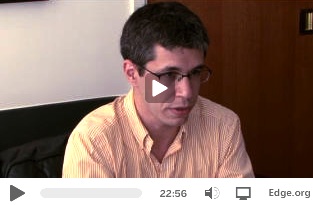
|




 ]
]


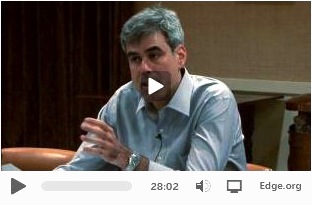

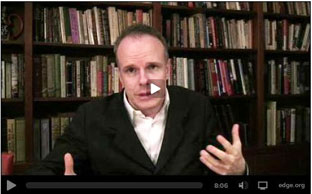

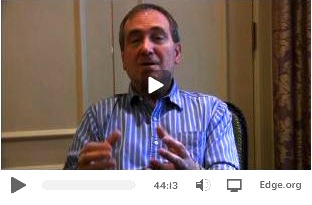
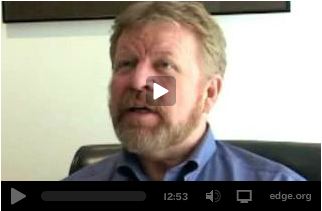
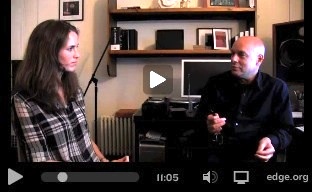

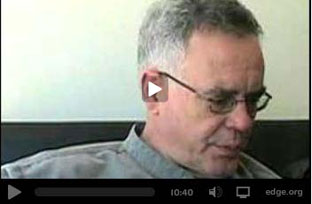
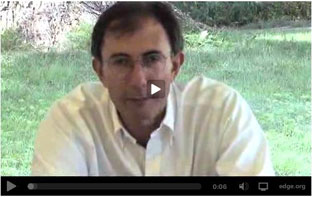
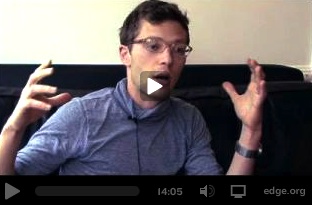



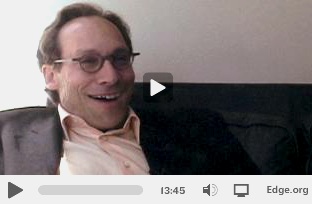
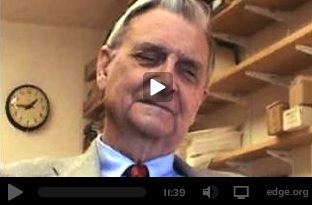










 Why has cooperation, not competition, always been the key to the evolution of complexity?
Why has cooperation, not competition, always been the key to the evolution of complexity?







